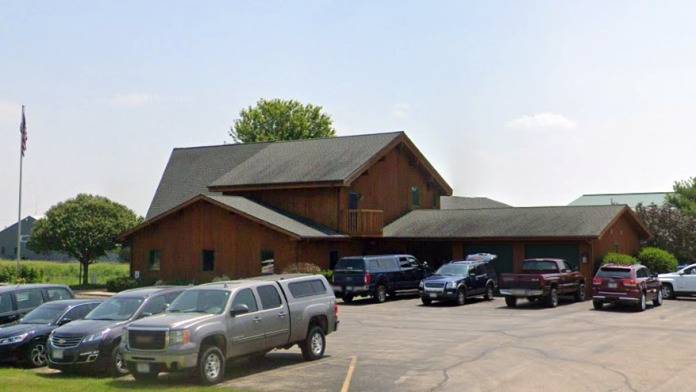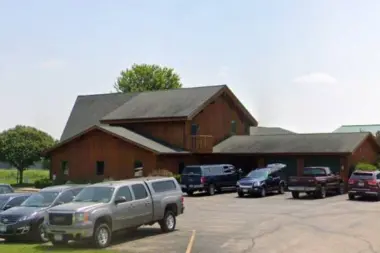About OceanHawk Counseling Alternatives
OceanHawk Counseling Alternatives is an addiction and mental health treatment facility that serves individuals, couples, and families of all ages and backgrounds throughout Stoughton, Dane County, and nearby areas in Wisconsin.
The facility’s website states that they currently accept Aetna, Anthem BlueCross BlueShield, Quartz Medicaid, Wisconsin Medicaid, and UHC insurance plans as payment for services. They also list out exactly what to expect when it comes to costs if you’ll be paying out of pocket.
Serving Stoughton, Dane, Jefferson, and Rock County
OceanHawk Counseling Alternatives offers completely confidential care to address a variety of issues that might arise as a result of addiction or contribute to your addictive behaviors.
The facility believes that treating mental health conditions or substance abuse issues depends on treating the whole person. That said, the clinic focuses on each client’s spiritual, physical, family, and relationship concerns that can influence their emotional well being to fully heal the person.
To address these concerns, the clinic helps clients develop coping skills, create alternative behaviors and patterns, and build a safety plan. Staff helps you identify appropriate resources to help in times of crisis, and also provides drug testing and assessments.
Providing Quality Care Since 2006
For almost 20 years, OceanHawk Counseling Alternatives has provided first-step recovery services, intensive outpatient care, and relapse prevention programs for those in need.
The intensive outpatient program involves four weeks of client group and family group sessions. The client sessions last for three hours and are held twice a week. Family group sessions are held one day a week for three hours. Independent individual or family sessions are also available.
The relapse prevention course lasts for eight weeks.
Latest Reviews
Rehab Score
Gallery


Accepted Insurance





Other Forms of Payment
Military members, veterans, and eligible dependents have access to specific insurance programs that help them get the care they need. TRICARE and VA insurance can help you access low cost or no cost addiction and mental health treatment. Programs that accept military insurance often have targeted treatment focused on the unique challenges military members, veterans, and their families face.
Addiction Treatments
Levels of Care
Outpatient Programs (OP) are for those seeking mental rehab or drug rehab, but who also stay at home every night. The main difference between outpatient treatment (OP) and intensive outpatient treatment (IOP) lies in the amount of hours the patient spends at the facility. Most of the time an outpatient program is designed for someone who has completed an inpatient stay and is looking to continue their growth in recovery. Outpatient is not meant to be the starting point, it is commonly referred to as aftercare.
Treatments
Mental health rehabs focus on helping individuals recover from mental illnesses like bipolar disorder, clinical depression, anxiety disorders, schizophrenia, and more. Mental health professionals at these facilities are trained to understand and treat mental health issues, both in individual and group settings.
Substance rehabs focus on helping individuals recover from substance abuse, including alcohol and drug addiction (both illegal and prescription drugs). They often include the opportunity to engage in both individual as well as group therapy.
Clinical Services
Cognitive Behavioral Therapy (CBT) is a therapy modality that focuses on the relationship between one's thoughts, feelings, and behaviors. It is used to establish and allow for healthy responses to thoughts and feelings (instead of unhealthy responses, like using drugs or alcohol). CBT has been proven effective for recovering addicts of all kinds, and is used to strengthen a patient's own self-awareness and ability to self-regulate. CBT allows individuals to monitor their own emotional state, become more adept at communicating with others, and manage stress without needing to engage in substance abuse.
Research clearly demonstrates that recovery is far more successful and sustainable when loved ones like family members participate in rehab and substance abuse treatment. Genetic factors may be at play when it comes to drug and alcohol addiction, as well as mental health issues. Family dynamics often play a critical role in addiction triggers, and if properly educated, family members can be a strong source of support when it comes to rehabilitation.
Group therapy is any therapeutic work that happens in a group (not one-on-one). There are a number of different group therapy modalities, including support groups, experiential therapy, psycho-education, and more. Group therapy involves treatment as well as processing interaction between group members.
In individual therapy, a patient meets one-on-one with a trained psychologist or counselor. Therapy is a pivotal part of effective substance abuse treatment, as it often covers root causes of addiction, including challenges faced by the patient in their social, family, and work/school life.
Trauma therapy addresses traumatic incidents from a client's past that are likely affecting their present-day experience. Trauma is often one of the primary triggers and potential causes of addiction, and can stem from child sexual abuse, domestic violence, having a parent with a mental illness, losing one or both parents at a young age, teenage or adult sexual assault, or any number of other factors. The purpose of trauma therapy is to allow a patient to process trauma and move through and past it, with the help of trained and compassionate mental health professionals.
Staff

Jean Daute, MS, LPC, CSAC, MAC, ICS
Clinical Director
Contact Information
3185 Deer Point Drive
Suite A
Stoughton, WI 53589



